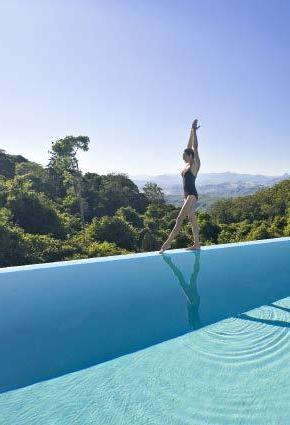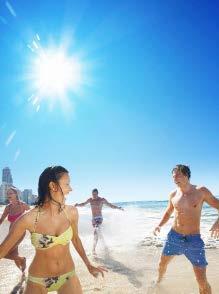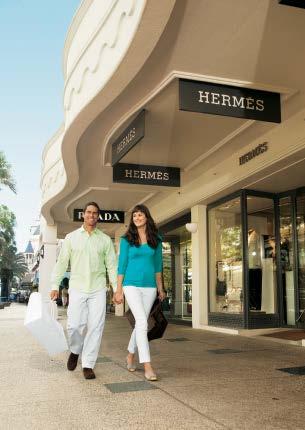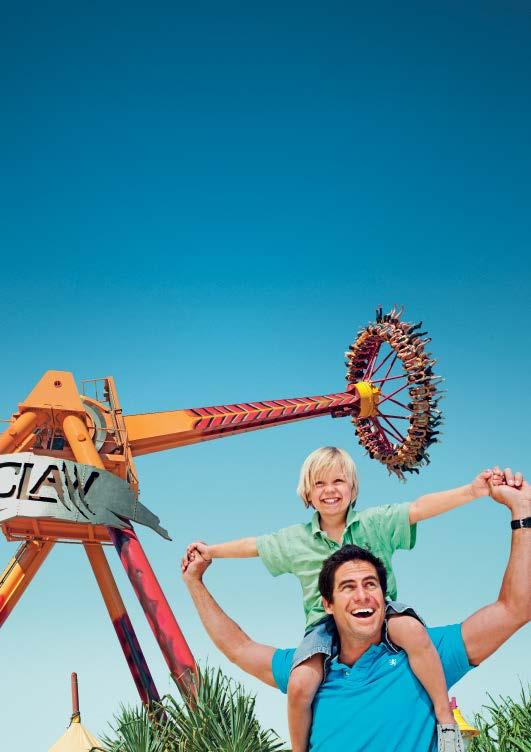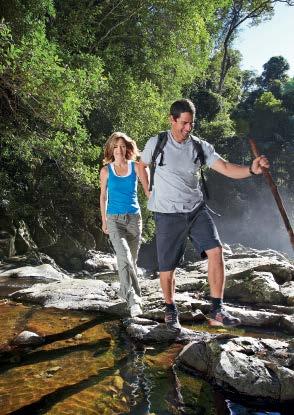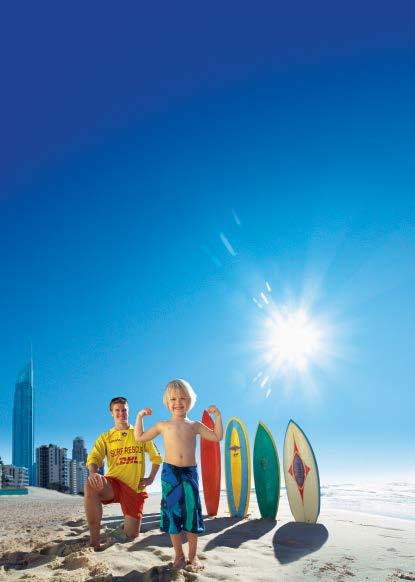Travel Information CLIMATE A sublime subtropical climate delivers an average of 300 days of sunshine every year, ensuring mild average temperatures:
Australian Dollar 100c = $1 AUD Coins 5c, 10c, 20c, 50c, $1, $2 Notes $5, $10, $20, $50, $100
Spring Sept-Nov, 15-25˚C (59-77˚F) Summer Dec-Feb, 20-28˚C (68-83˚F) Autumn Mar-May, 16-25˚C (61-77˚F) Winter Jun-Aug, 11-21˚C (52-70˚F)
Currency exchange and ATMs are widely available. Major credit cards are accepted at most shops, hotels and restaurants. xe.com/ucc
EMERGENCY For emergency ambulance, police and fire services dial 000 from a fixed line or 112 from a mobile phone.
ELECTRICITY 240/250 volts AC 50Hz. Universal outlets for 11 volts (shavers only) are standard in hotels, apartments and motels.
MEDICAL SERVICES
PUBLIC TRANSPORT
Major public hospitals include: Gold Coast Hospital (07) 5519 8211 Robina Hospital (07) 5668 6000 Tweed Hospital (07) 5536 1133 Private hospitals and 24-hour clinics are also available. Full medical and travel insurance is recommended for travellers.
The Gold Coast has extensive public transport, taxi and hire car networks. translink.com.au, qr.com.au, gccabs.com.au
LANGUAGE English. Translation services and multilingual tour guides are readily available.
8
CURRENCY
PASSPORTS AND VISAS Visitors to Australia need a valid passport and the appropriate visa. Visitors can apply for visas in the format of an Electronic Travel Authority (ETA) from travel agents, airlines, Australian diplomatic offices and online. Visitors holding a passport not approved for ETA need to apply for a label visa from an Australian diplomatic office. dfat.gov.au
TIME ZONE
ROAD RULES
Eastern Standard Time (EST): GMT + 10 hours. Daylight Saving is not observed in Queensland.
Australians drive on the left hand side of the road. A 50km/h speed limit applies in most residential areas. Seatbelts must be worn and strict drink driving laws are enforced.

